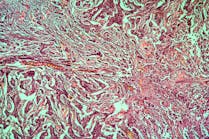Using cells from kidney biopsies, Johns Hopkins Medicine, researchers report progress in the search for more accurate and easier-to-obtain markers to help predict, manage and assess treatment of acute kidney injury (AKI).
Results of this study, which overall looked at 120,985 nuclei from kidney biopsy samples from 24 participants, were published December 13th in the journal of Science Translational Medicine.
According to the National Library of Medicine, AKI is estimated to affect 15% to 20% of patients who are hospitalized, putting them at higher than usual risk of in-hospital death, and a progressive form of chronic kidney disease that may ultimately require dialysis or transplant. The new research was designed to help address a lack of noninvasive assessments of what is known as maladaptive proximal tubule (PT) repair. PT is a process marked by excessive inflammation as the body’s immune system responds to AKI. This PT maladaptation process offers an opportunity to identify noninvasive markers in blood or urine that can better and more safely predict AKI and manage treatment.
The study used a single-nucleus ribonucleic acid (RNA) sequencing approach to profile 120,985 nuclei from kidney biopsy samples from 17 participants with AKI and seven healthy participants courtesy of the Kidney Precision Medicine Project. The development of PT maladaptation markers required analysis of plasma proteome in patients having cardiac surgery and in marathon runners who may have suffered exercise-related AKI. Researchers found that patients with AKI had maladaptive PT cells present and were able to identify six different protein markers. The protein markers found include, increased transforming growth factor–β2 (TGFB2), collagen type XXIII-α1 (COL23A1), and X-linked neuroligin 4 (NLGN4X) and had decreased plasminogen (PLG), ectonucleotide pyrophosphatase/phosphodiesterase 6 (ENPP6), and protein C (PROC).





